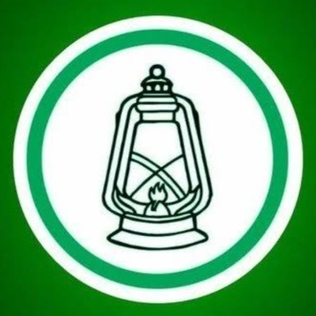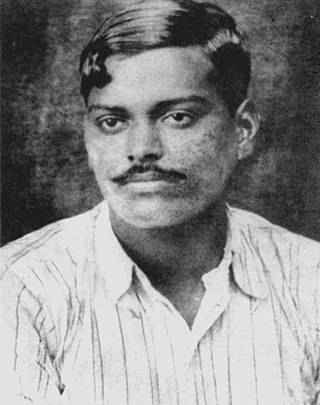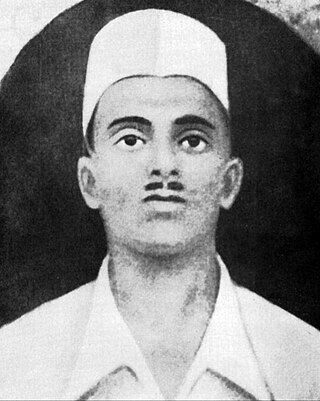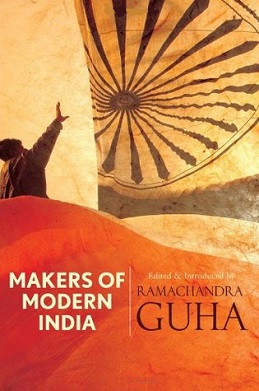
The Rashtriya Janata Dal is an Indian political party, mainly based in the state of Bihar. The party was founded in 1997 by Lalu Prasad Yadav.

Chandra Shekhar Sitaram Tiwari - 23 July 1906 – 27 February 1931), popularly known as Chandra Shekhar Azad, was an Indian revolutionary who reorganised the Hindustan Republican Association (HRA) under its new name of Hindustan Socialist Republican Association (HSRA) after the death of its founder, Ram Prasad Bismil, and three other prominent party leaders, Roshan Singh, Rajendra Nath Lahiri and Ashfaqulla Khan. He hailed from Bardarka village in Unnao district of United Provinces and his parents were Sitaram Tiwari and Jagrani Devi. He often used the pseudonym "Balraj" while signing pamphlets issued as the commander-in-chief of the HSRA.

Amrita Singh is an Indian actress who mainly works in Hindi films. Singh made her acting debut with Betaab (1983), and established herself as a leading actress of the 1980s and early 1990s.

Sukhdev Thapar was an Indian freedom fighter who fought against the British government for the freedom of India. He was a member of the Hindustan Socialist Republican Association (HSRA). He was executed along with Shivaram Rajguru and Bhagat Singh on 23 March 1931.

Ram Prasad Bismil was an Indian poet, writer, and revolutionary who fought against British Raj, participating in the Mainpuri Conspiracy of 1918, and the Kakori Conspiracy of 1925. He composed in Urdu and Hindi under pen names Ram, Agyat and Bismil, becoming widely known under the latter. He was also a translator.
The Revolutionary movement for Indian Independence was part of the Indian independence movement comprising the actions of violent underground revolutionary factions. Groups believing in armed revolution against the ruling British fall into this category, as opposed to the generally peaceful civil disobedience movement spearheaded by Mahatma Gandhi.
Social reformers are individuals who actively challenge and seek to change societal norms and structures that perpetuate inequality and injustice. Their work addresses systemic issues such as caste discrimination, gender bias, economic disparity, and access to education and healthcare. By advocating for the rights of marginalized communities, social reformers aim to dismantle oppressive practices and create a more just and equitable society.
Purkazi or Purquazi is a town and a nagar panchayat in Muzaffarnagar district in the Indian state of Uttar Pradesh. This town shares its border with the Haridwar district of Uttarakhand, serving as a connecting link between the two regions. Located in close proximity to the state border, Purkazi offers easy access to nearby towns and cities in both states.
"Right To Recall (RTR)" are existing laws in some states of India that allow citizens to remove or replace public servants holding posts of Sarpanch, Mukhiya, Corporator and Mayor in the government.

Ram Lakhan Singh Yadav, known with the honorific "Sher-e-Bihar", also known as Ramlakhan Babu, was an Indian freedom fighter, educationist, social reformer and politician. The half a century long political journey of Ramlakhan Babu, which started in post-independence era as a member of the Zilla Parishad in 1947, reached the pinnacle of becoming a Union Minister in the Central Government in 1994.He was elected to the 10th Lok Sabha, lower house of the Parliament of India from the Arrah, Bihar in 1991 as a member of the Janata Dal but joined the Congress in controversial circumstances which helped save Narasimha Rao Government in the 28 July 1993 no confidence vote. He was the Minister for Chemicals and Fertilizers in the Narasimha Rao Government.
Langat Singh College, commonly known as L. S. College, is a college in Muzaffarpur, in the Indian state of Bihar. It was established on 3 July 1899, and is one of the city's oldest colleges. It is named after its founder Langat Singh. It is affiliated to Babasaheb Bhimrao Ambedkar Bihar University, and offers undergraduate and postgraduate courses in science and arts.
Sare Jahan se Accha is a pencil sketch mural in Ahmednagar city in Maharashtra, India. It was created in the year 1997. The sketch was drawn by Pramod Kamble, who is a painter and sculptor. He created it as a tribute to the nation on the occasion of 50 years of independence. It was painted on the specially-prepared wall of Mahavir Art Gallery in Ahmednagar. Kamble has portrayed Bharat Mata and 500 great people born out of Indian culture. It is said to be the world's biggest pencil sketch. This is the only fixed asset in India which was made as a part of India's 50th Independence day celebration.
Bismil Azimabadi was an Indian freedom fighter, landlord, and an Urdu poet from Patna, the capital of Bihar.

Shakeel Ahmad Khan is a member of the 16th assembly of Bihar state in India. He is a National secretary of the Indian National Congress (INC).
Hardinge Park officially known as Shaheed Veer Kunwar Singh Azadi Park is a public park in the city of Patna built by British Raj in 1916. The park was initially named after Viceroy Charles Hardinge and was built in his honour as he was instrumental in the creation of Bihar as a separate province. It was built as Patna's first public park. The park is located midway between Patna Junction and the Bihar Secretariat. The name was changed to Shaheed Veer Kunwar Singh Azadi Park post independence. The park also hosted a garden party for then Prince of Wales - Edward VIII - in 1921 on his visit to Patna. The park completed its centenary in 2016. It is known as the old bus stand. Indian Railways is soon going to construct Suburban Rail Terminal at Hardinge Park which is barely 900 metres west from Patna Junction.
"Mere Desh Ki Dharti" is a Hindi song from the 1967 Hindi film Upkar. The lyrics of the song were written by Gulshan Kumar Mehta, and the music was composed by Kalyanji–Anandji. Mahendra Kapoor was the playback singer. This is a patriotic song, and was picturised on Manoj Kumar in the film. The song earned Kumar the nickname Mr. Bharat.
Muhammad Shafi Daudi was an Indian Muslim scholar and a politician, who was a member of the Central Legislative Assembly from 1924 to 1935.

Makers of Modern India is a non-fiction book written by Indian historian-scholar Ramachandra Guha and published by Penguin India in 2010. The book features profiles of selected personalities that laid the foundation of modern India: Ram Mohan Roy, Syed Ahmad Khan, Khuda Bakhsh, Jotirao Phule, Gopal Krishna Gokhale, Bal Gangadhar Tilak, Tarabai Shinde, Mahatma Gandhi, Rabindranath Tagore, B. R. Ambedkar, Mohammad Ali Jinnah, Periyar, Kamala Devi Chattopadhyay, Jawaharlal Nehru, M. S. Golwalkar, Rammanohar Lohia, Jayaprakash Narayan, C. Rajagopalachari, Verrier Elwin, and Hamid Dalwai.
Popular figures of India have often been conferred with an honorific title by fans and followers. These generally include those that are not formally recognised. Many titles were given to various Indian leaders during Indian independence struggle.
Shri Krishna Saral was an Indian poet and writer. Most of his works are about Indian revolutionaries, 15 of which are mahakavyas (epics). He is hailed as a 'Yug-Charan' for his nationalist poetry reminiscent of the sacrificial traditions of Indian soldiers. "Mai Amar Shahido ka Charan" composed by him is a very popular Hindi language poem.




























